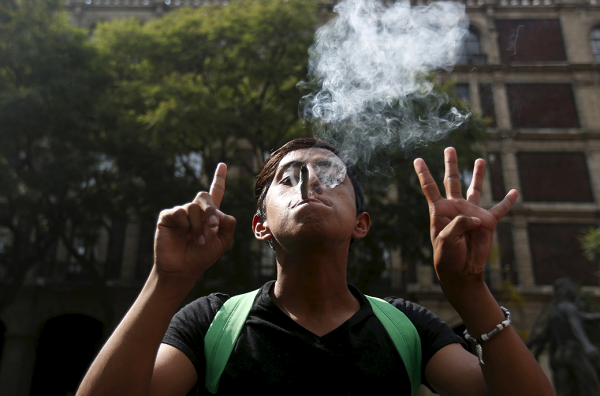Marijuana Is Good For You? Cannabis May Help Kick Tobacco Addiction

Marijuana has proven to be a useful supplement for combating pain, but the plant could potentially also be resourceful for addiction management as well, according to a new study that found cannabis reduced tobacco use. The Canadian study, which was released Friday, found that marijuana was a growing replacement for a slew of harmful drugs, including opioids, as well as alcohol.
The study surveyed 271 participants and asked 107 questions based on “demographics, patterns of use and cannabis substitution effect.” In the findings, researchers found 12 percent of people were able to successfully stop using tobacco after using marijuana products. Twenty-five percent of people were able to substitute cannabis for alcohol.
As for the use of opioids, the study found a whopping 63 percent of people replaced prescription drugs including opioids, benzodiazepines and antidepressants for cannabis. In regards to opioids specifically, 30 percent of people replaced painkillers with marijuana.
While the study still suggested more research needed to be done on the topic, the authors, Philippe Lucas and Zach Walsh, concluded that marijuana could be an effective treatment for various conditions, especially in regards to pain, mental health and addiction management.
The Canadian report, which will be released in full in the April 2017 edition of International Journal of Drug Policy, seems to be in line with similar findings in a separate U.S. report released by The National Academies of Sciences, Engineering And Medicine recently. The study, which was released in January, analyzed the health effects of cannabis and cannabinoids after reviewing data compiled between 1999 and 2015. The study found tetrahydrocannabinol or THC was valuable for pain relief, control of nausea and vomiting and appetite stimulation but said that there was no significant indication that use of the plant led to increased use of harder drugs like opioids, alcohol or tobacco use. However, the study did note there was a connection between THC consumption and reduced opioid, alcohol and tobacco use.
© Copyright IBTimes 2025. All rights reserved.






















